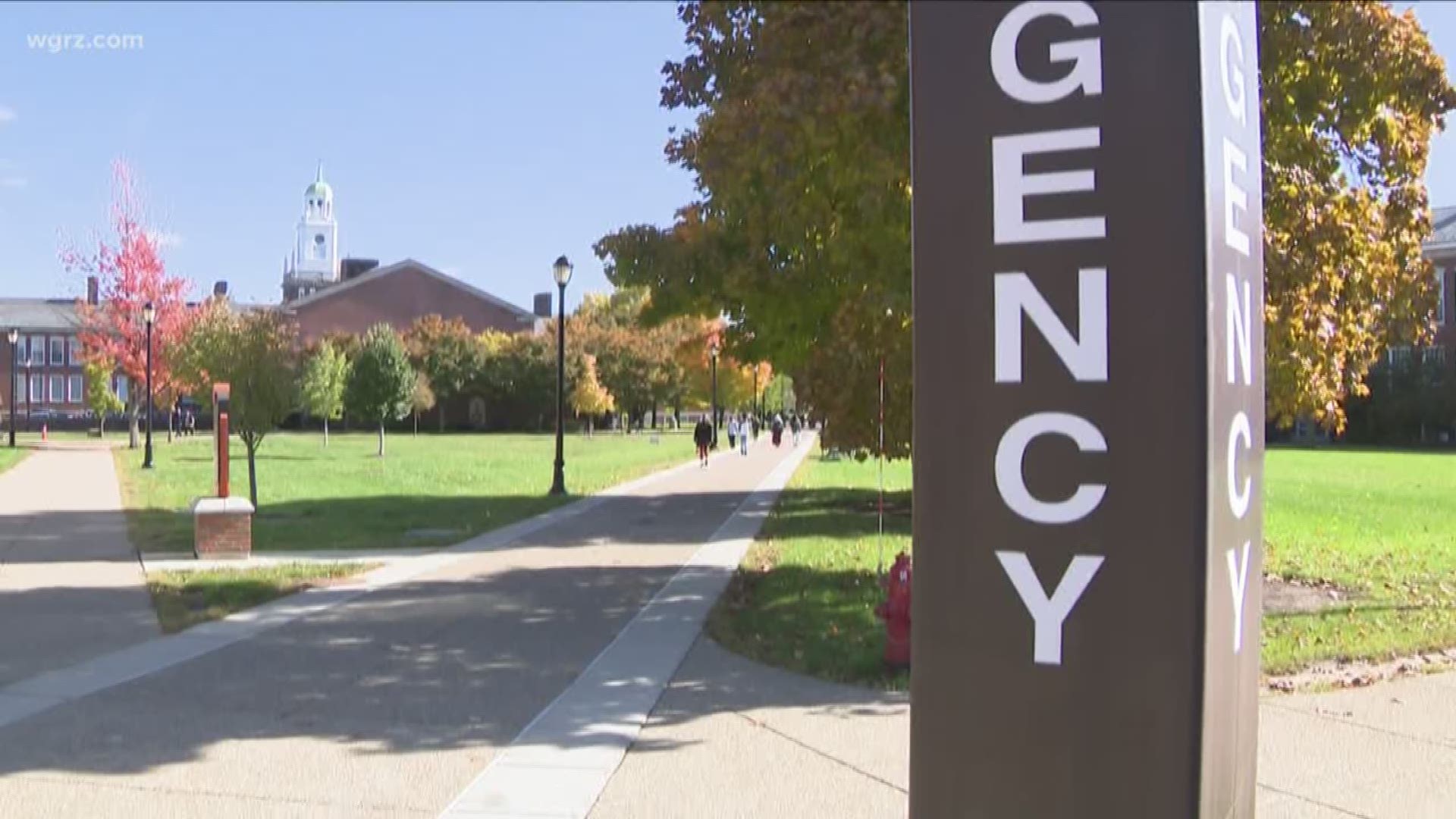BUFFALO, NY - New York State's "Enough is Enough" law, passed in 2015, requires all colleges and universities in the state to collect data on all sexual assault and other associated crimes as defined by the state.
Complaints brought to the attention of college officials are then sent to the NYS Department of Education where they are compiled and periodically released.
For the spring semester of 2018, out of 233 colleges and universities across the state, Buffalo State College reported the fifth highest number of incidents, with a total of 46.
The University at Buffalo, Genesee Community College, and SUNY Fredonia were also among the group of schools comprising the 50 highest in terms of reportable incidents.
Cornell University topped the list with 199 reportable incidents.
All told there were 1,762 complaints received by colleges and universities across the state during the first five months of 2018.
5th Highest: Buffalo State
While some might view Buff State’s high ranking on the list as dubious, one college official told 2 On Your Side there is another way to interpret the data.
“I think people should look at this and take it as such that we have done a great job of informing the campus community about Enough is Enough and Tittle IX,” said Dr. Karen Jones, who serves as both the Chief Diversity Officer and Title IX Coordinator at Buffalo State. “We have created an environment where more folks feel more comfortable in bringing forth complaints,” she said, in offering a possible explanation for the college’s higher number of reported incidents.
In recent years, Jones said Buff State has ramped up its awareness among students and faculty of recognizing incidents and the importance of reporting them. “We’ve removed artificial barriers precluding people from bringing forth complaints,” she said.
However, as most colleges and universities are under mandates to do the same thing, that might not explain the higher numbers at Buffalo State
A Range of Reportable Incidents
Sexual assaults are not the only crimes classified as reportable incidents under Enough is Enough. Schools are also required to report to the state complaints they receive regarding stalking, domestic, or dating violence.
While the state's data doesn't break down how many of each were reported per campus, Jones confirmed that five of the 46 incidents reported by Buffalo State between January and May of 2018 were sexual assaults.
Data Doesn’t Tell the Whole Story
“I don’t know that I would say this is a dangerous place,” said Jones, in noting that of the 46 complaints taken by the college and reported to the state, slightly less than half (22) were alleged to have occurred on campus.
She also offered insight as to how the numbers at Buffalo State in particular may have been impacted during the last reporting period.
“We have had instances, for example, where people came forward to make complaints regarding something which occurred years ago, but which (under reporting requirements) had to be reported for that year in which we were made aware of it,” said Jones. “As well, one person could very well report two instances, and we treat them separately.”
She also noted that the latest data to be released reflects only a snapshot in time, and that the numbers, and thus the placement of schools on the list, could be quite different in the next reporting period.
This Isn’t Potsdam
In comparison to most colleges and universities in New York State, Buffalo State is rather large, with nearly 10,000 full time, undergraduate students.
It is also the only SUNY campus which is entirely located within an urban setting.
As such, it is surrounded by neighborhoods…an open campus through which anyone may pass without much notice, including those intending to do harm.
A recent example of this was a spate of armed robberies in dormitories, which police say were committed by outsiders who were not part of the campus community.
However, Jones insists Buffalo State’s Campus is relatively safe.
"Part of our role as administrators and as parents is to safe guard the interests of our students," said Jones, whose daughter attended the school before graduating in 2012.
“If I did not believe SUNY Buffalo State was safe campus, I wouldn't have encouraged her to come here," Jones said.

